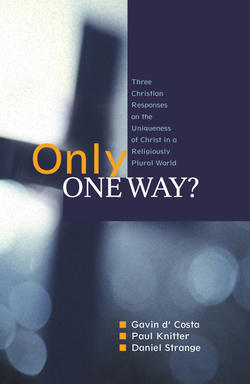Читать книгу Only One Way? - Gavin D'Costa - Страница 28
На сайте Литреса книга снята с продажи.
The two most pressing issues for Christian theology today
ОглавлениеIf theology is a conversation between ‘what we are given to believe’ and ‘what is going on in our world’, we have to be more precise about what is happening in today’s world. For me, and for many Christians, the two most pressing questions that clamour for answers from my Christian beliefs are the many religions and the many poor. Yes, there have always been many religions and many poor people. But today, they are knocking on our door (sometimes literally!) and pushing themselves into our awareness as never before.
Why, if Jesus is the only saviour and Christianity the only really true religion, has God allowed so many other religions to continue to prosper? And instead of competing and fighting with each other, can the religions dialogue and co-operate together toward a world of greater peace and well-being?
What can we do about the horrible reality of the millions of people who cannot feed their children or provide a roof and medicine for them? How address the glaring inequality of the distribution of the goods of this world between the few who have so much and the many who have so little? And of course, when we talk of ‘the many poor’, that includes the impoverished earth, for the impoverishment of the earth, we are told, and the impoverishment of peoples are intimately and murderously related.5
Unless ‘what I believe’ helps me, if not answer, at least deal with and struggle with such questions, it will not be a meaningful faith for me. What is true must be meaningful. If it’s not meaningful, who cares if it’s true?
Therefore, the two primary characteristics of the theology which I will try to summarize in what follows – or the two criteria by which I will evaluate whether a Christian theology is both meaningful for our contemporary world and faithful to the message of Jesus– will be these: is it liberative and is it dialogical.6
By liberative I mean, essentially, that it must be a theology that shows how the message of Jesus and his Church enable us to understand the causes of, and the solutions for, the widespread suffering due to poverty and injustice.
By dialogical I mean that it must be an understanding of Christian beliefs that both promotes and is informed by a dialogue with other religions. Any theological interpretation of Christian belief that does not allow for and promote dialogue can’t be a responsible and orthodox interpretation. And once such dialogue with other religions is embraced, it will in turn affect and inform the theological task of interpreting Jesus’ message. In the pages that follow, I will try to make clear how much my dialogue with other religions, especially with Buddhism, has enabled me to understand more deeply and embrace more resolutely my own Christian faith.
These two essential characteristics of a relevant and orthodox Christian theology – that it be both liberative and dialogical – are vitally connected. With Hans Küng, I believe that only through a globally co-operative dialogue of religions can we achieve a world of global peace with justice.7
